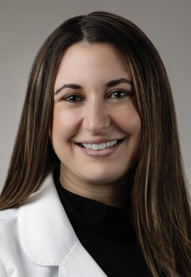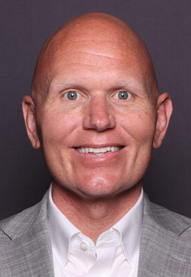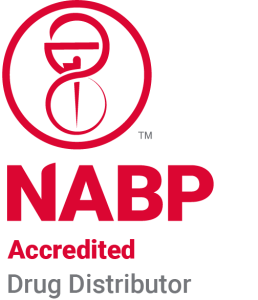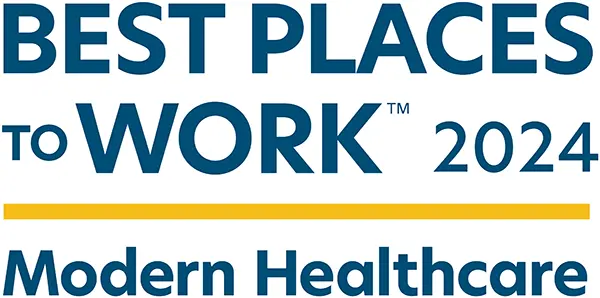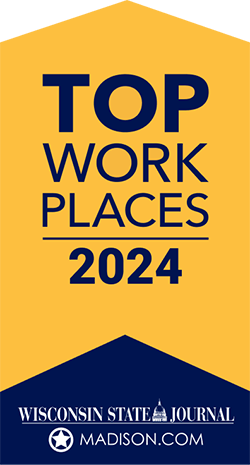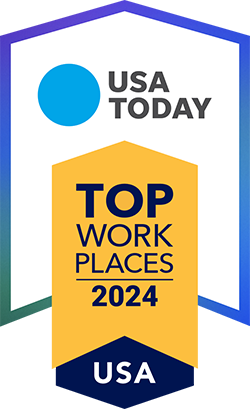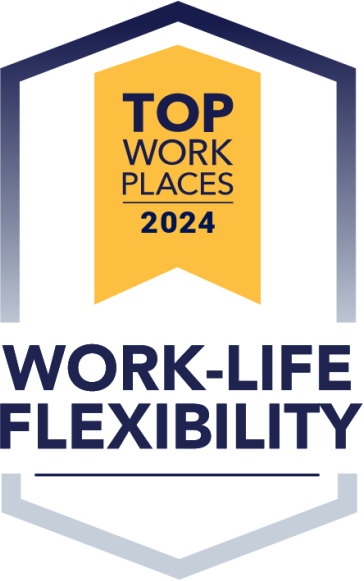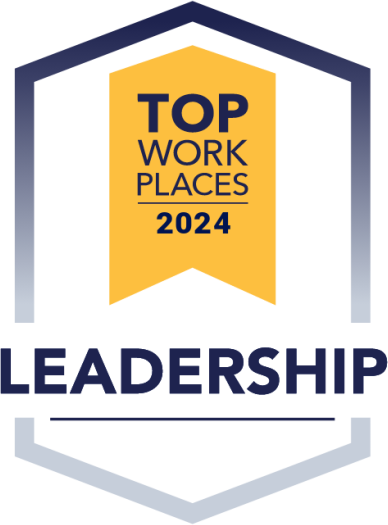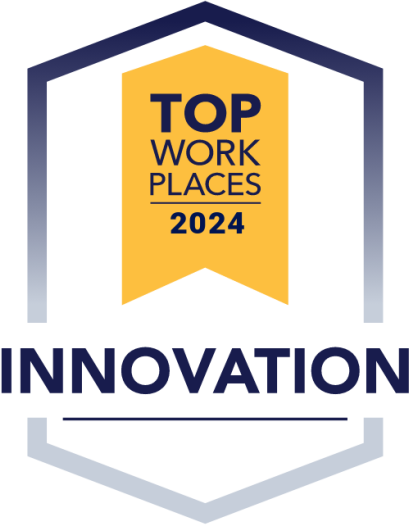Katie Bass, PharmD and owner of two pharmacies in central California is a dynamo. After assuring listeners she too pays DIR fees and struggles to balance the demands of owning two pharmacies and raising two small children, she shares specific examples of things she is doing to succeed. The list includes buying smart, knowing her local community, investing in new technology, doing point-of-care testing, and tapping into new revenue available with community health workers. Katie is a superstar who will inspire you to try new things in your pharmacy. In this podcast, Katie is also joined by Jake Lewis, her IPC Regional Director.
Transcript
Introductory Voice-Over (00:06):
You are listening to the Pharmacy Podcast Network.
This is Pharmacy Crossroads with your host community pharmacy business veteran, the road trip guy, Bruce Kneeland Community Pharmacy is at a crossroads. Pharmacy owners across the country are evolving their pharmacy businesses and making a bigger impact on their communities. Bruce talks with the most innovative community pharmacy owners, pharmacy industry experts, and people who are passionate about the business of pharmacy and its impact on community healthcare pharmacy. Crossroads is a member of the Pharmacy podcast Network. And now here’s our host, Bruce Kneeland.
Bruce Kneeland (00:51):
This is Bruce Kneeland with another episode of Pharmacy Crossroads. And one of the great things about being a podcast guy is that I get to meet some amazing people. And I’ve got two folks today who are joining me in the podcast. The star of the show is Katie Bass. She’s a pharmacist who owns two pharmacies in the central California area. One of them is called Yosemite Drug, so I’m assuming that’s someplace near Yosemite. And then the other one, which is kind of her flagship store is in a town called Planada, which I have never heard of, but that doesn’t mean it’s not there. So it really is there, Katie, right?
Katie Bass (01:35):
Yes, it’s there.
Bruce Kneeland (01:37):
So Katie, she’s the owner of these two stores. She evidently bought the San Joaquin pharmacy from your dad a few years ago. Is that true?
Katie Bass (01:48):
Yeah. Yeah.
Bruce Kneeland (01:49):
So tell us who you are. Just a little background.
Katie Bass (01:54):
Awesome. So my name’s Katie. I graduated pharmacy school, got my pharmacy doctorate from University of Hilo, Hawaii in 2014. I was pretty much raised in pharmacy when I was little. My dad was going to pharmacy school in Idaho and he started his career about ‘93, worked kind of chain pharmacies and got sick of that and started his own pharmacy in 2000, which is San Joaquin drug in Planada. So I was about 14 at the time and I became clerk, delivery driver. I mean, you name it, I did it in the drug store. I know there’s a lot of people out there, kind of similar stories. So I was always good at math and science, and so I kind of decided to start pursuing that. So I went and got my bachelor’s degree, then got my doctorate and then came back home and took over as pharmacist in charge in 2015 at San Joaquin Drug. I officially bought it and my dad pretty much retired at that point. I didn’t officially buy it or take ownership until 2019. And that same year I opened Yosemite Drug, which is in Coarsegold California, kind of up in the foothills. So a little bit different population than I serve in Planada. So yeah, that year was crazy. I took over ownership from that store, opened a second and had my first child. So I had my son who’s now four, and I have a daughter that’s two.
Bruce Kneeland (03:21):
Oh wow. That’s what you call a full life. And joining us today is her confidant and support person from the Independent Pharmacy Cooperative, IPC, Jake Lewis. Take a minute and tell us who you are.
Jake Lewis (03:37):
Hey Bruce. Glad to be here with you and with Katie. Yeah, so I’m with IPC, I’ve been with IPC 14 years. I started IN independent pharmacy in the early 2000s as well as a clerk and did some other things, technician and a small town of Snowflake, Arizona. So I got a good feel for what an independent pharmacy does early on, and I knew I loved it. I loved the connection we have with the customers and it was something that really just made me happy. So I knew I wanted to be in pharmacy in some regard from then on out, like I said, 14 years ago, I started with IPC and it’s been a great opportunity. My family and relocated to Southern California almost 10 years ago.
Bruce Kneeland (04:27):
It’s great to have you with us. And I guess the first thing I want to start, so Katie, you’re sitting here all smiles and happy today. You own two independent pharmacies and one of the things that when I run into some of my podcast listeners at trade shows, they say, why don’t you ever talk to pharmacists who have problems? And you always seem to talk to pharmacists who are making money and growing. They have DIR fees, they have bad reimbursement. Do you have any problems in your pharmacy?
Katie Bass (05:03):
Yes. I mean, I honestly don’t know a pharmacist that isn’t facing these issues. Honestly, even some of the most successful pharmacists I know that I look up to are facing the same exact issues I’m facing. There are definitely days and weeks where I get my DIR report and I don’t know how I’m going to survive. I mean, it’s a very real thing. I can have my scores, I can be a top 20% performer. My scores are always above 90%. We know the numbers don’t make any sense, but I mean, one of my stores paid over $200,000 in DIR fees last year. That was just for one location, and that was for being in the 90 percentile. And I remember when I started in 2015 and my dad wasn’t looking at this stuff, this wasn’t something that was really on his radar. So I started looking at the EQUIPP scores and doing all that, and we were in the 60th percents and our DIR fees were like 7-9,000.
(05:58):
And so even though I’ve improved a ton, my DIR fees are astronomical and all stores are experiencing this across the board. And I mean, these are pharmacists that I know that are doing amazing things and still suffering and still going through this. So it’s very real. I mean, it’s hurting independent pharmacy a ton. And I think most of us know if we either have to change our practice model, which I think a lot of us are doing and adapting to best help our patients and survive. And I mean, I think it’s twofold. I also think we have to fight back legislatively because if we do change our practice model and we don’t fight back to say they’re not going to come after that next. So I mean, it’s got to be twofold. I think you have to really get involved with advocacy. As frustrating as it is, we have to get some policy changes out there to help control these PBMs. And then we have to be innovative and change our models. I struggle with these things too. I mean, I can super relate to pharmacists. It is extremely stressful job. It really is.
Bruce Kneeland (07:06):
Yeah, I, and you’ve demonstrated your bonafides, you’re a real pharmacist.
Bruce Kneeland (07:13):
Let’s do move forward with why you’re here today. So you and I connected on LinkedIn, oh, I think five or six months or five or six weeks ago. And I was just blown away by how positive and articulate you were. And at that time I learned that you were the 2022 MVP pharmacy for the Independent Pharmacy Cooperative. They have like 2000 members and you were selected as the top tier that year. What’s a couple of the things that you did that put you on their radar screen?
Katie Bass (07:50):
Well, I’ve always had a really great relationship with my IPC reps. They’ve always helped me out a ton like Jake and Mark before him. And so they knew a lot of what I was doing and they’ve always been really supportive of me. So I think just having that good relationship with them was helpful. And a lot of it came around during Covid. Our location in Planada is over 90% Hispanic majority Medi-Cal. And we were able to do some really amazing things in that community. And I don’t want to take all the credit, obviously it’s my staff and the community as a whole, we had a very large support. So for having a predominantly Hispanic population, we were able to get a large portion of them vaccinated early on testing for free to that area. Their schools were some of the first open in California. We were able to provide testing for them on site. So there was just a lot of ways we were able step up and help out in a trying time. And IPC recognized those contributions. I won the bowl of Hygeia that same year for California. So yeah, I recognized all the amazing things we were doing for independent pharmacy and how much we stood for what independent pharmacy does for those local communities that really, I mean, we’re there olive branch to healthcare. So yeah.
Bruce Kneeland (09:11):
My esteem for you just went up twofold when you mentioned the bowl of Hygeia. I’ve been in the business for 50 years and it’s been my privilege and honor to work with a number of people who have won the bowl of hygeia. It’s an exceptional award that they give to old people. And you won it as a kid who’s just, what, 10 years into practice. I mean, I don’t think you know what an honor that is.
Katie Bass (09:41):
Yeah, I was honestly blown away when the person that nominated told me they were going to nominate me. They were like, I just want you to know it’s probably a long shot, but I think you deserve it. You’ve done a ton. And I think because I, I was helping Coarsegold community in the same way doing the testing, doing vaccines, doing a ton in that community too. I mean, I was working, I was pregnant at the time too with my daughter and I was working seven days a week to make sure our communities were taken care of. And yeah, I mean maybe she just wrote a really good recommendation and they don’t ask you about age in that, so I don’t think they were aware how young I was.
Bruce Kneeland (10:20):
Well, that’s wonderful. So one of the other things that’s come up is that you’re experimenting or playing around talking about innovation with community health workers. Where are you on that and how did you get started on that and is it working?
Katie Bass (10:38):
Honestly, anytime somebody presents an opportunity to me, I just jump on it and then see how it goes. And sometimes they pan out, sometimes they don’t. So McKesson actually had this big grant money to help train certified pharmacy technicians. They’d give them the training for CHWs, and I was able to get that scholarship for both of my locations. I had a certified pharmacy tech at both locations that are pretty much my clinical pharmacy techs, I call ’em. And so they were able to each get that scholarship. So they graduated that program. Some of the first I did, actually, one of ’em was in the first cohort and one was in the second. So Medi-Cal will pay our Medi-Cal for CHW services, kind of the sticker is we have to contract with MCOs in California. And some have been very receptive and some haven’t.
(11:28):
So for our Planada location, our MCO for our Medi-Cal patients is Central Coast Alliance, and they gave us a contract, so we just signed that contract with them and they pay 150% of Medi-Cal rates. So we haven’t gone through the billing part of it or anything like that, but we’re hoping by the end of the year to have some claims go through our other MCO and course goals has not been receptive. They keep pushing us to the PBM and the pharmacy and we keep trying to explain to them, we’re not trying to bill as a pharmacy, we’re trying to bill as a provider, we’re a provider.
Bruce Kneeland (12:05):
What’s an example of one or two things that a community health worker does?
Katie Bass (12:11):
So they can do a lot of things, but basically their whole goal is just being, they should be a member of the community that they’re serving and working with, and they basically help provide resources to patients. So what happens when we come in was perfect example. We had a patient this week, couldn’t hardly pay his copay, so we hooked him up with a patient assistance program that’s kind of local. He can’t afford food right now. So we found a food bank form and we’re actually getting the food bank to bring food to us, and when we deliver his medications, we’ll deliver the food as well. So it’s stuff we’ve already been doing, but now we can bill for connecting these resources. So basically this person acts as a resource hub for people in the community. And I mean, to me it’s stuff that we’ve always been doing as pharmacies, and now there’s just a way to help pay for it because we’re taking a bigger look at health. We know that people aren’t going to take their medications if they can’t afford to eat, if they can’t afford their copays. Health is a much bigger thing than just medicines. And I think healthcare providers and insurers, luckily now are seeing that it’s a much bigger picture.
Bruce Kneeland (13:17):
Well, and this is part of what I see of the future of pharmacy, and this is just one piece of several things that are on the horizon dovetails with remote patient monitoring and long-term care at home and those kinds of things, which are the doors that are opening that are available to pharmacists like you who are willing to check ’em out and look at it and play with them.
Voice-Over (13:50):
This episode of Pharmacy Crossroads is sponsored by Independent Pharmacy Cooperative, widely known as IPC established in 1983. IPC is the nation’s largest group purchasing organization owned by independent pharmacy with a mission of maximizing the success of community pharmacists. IPC works to provide members with access to effective programs and services designed to enhance profitability for independent pharmacy. Read more about our mission by checking out our website@ipcrx.com. That’s ipcrx.com. We hope you enjoy this episode of Pharmacy Crossroads.
Bruce Kneeland (14:34):
Just on the community health worker thing, I was first introduced to this about six years ago, attended a conference in Phoenix, and I was blown away at the creativity that entrepreneurs were throwing at this. And the example that blew me away was there was one company there that was sharing what they had done, and they had gotten like a 50 million grant from CMSs, and they were providing phones to people, iPhones that were dedicated so that they could call this patient and find out how they’re doing and do the monitoring. But the thing that blew me away was the biggest thing that they did that justified the expense was they knew that Mary or Sally or Bob had a doctor’s appointment tomorrow, and they would call Bob and say, Hey, you’ve got your doctor’s appointment tomorrow, are you going to be able to make it?
(15:35):
And Bob would say, oh, shoot, I forgot I’m visiting an uncle in San Jose. I won’t be able to make it. And so they would call the doctor and cancel the appointment 24 hours ahead of time so that the insurance company didn’t get billed for the appointment that Bob didn’t come to. And when you start thinking about the complexity of healthcare and the expenses associated with that, the CMS was willing to spend $50 million or whatever on a trial to see if that would work. So that kind of stuff can be done in a pharmacy and it can be done better in a pharmacy. So kudos for you for tiptoeing into that and keep at it because a future there. So you still have to buy pharmaceuticals and you still have to sell them for less than you paid for them. So I understand one of the tools you use is the Independent Pharmacy Cooperative Warehouse. Tell us a little bit about how that helps you buy a little bit smarter.
Katie Bass (16:43):
So they’ve been a great secondary for us. We normally always get it next day pretty close to when we get our McKesson order, which is nice. We’re not having to tell patients, oh, you have to wait an extra two or three days, which sometimes happens with the secondary wholesaler, you don’t get it next day. So that’s been really nice. We don’t have to do that for our patients. Their generics also tend to be cheaper than our wholesalers, so they help us a ton on that generic where we might be underwater if we purchased from our primary wholesaler, we end up actually making some money if we purchased from our secondary. They’ve also helped us a few times in brand squeezes. Their brands aren’t that badly priced, that much more off of our wholesaler. And for shortages like Ozempic, when that first started going short, we were able to get it through our secondary. So there’s been a couple of times where we weren’t able to get medications, even brand medications through our wholesaler that we were able to get through our secondary without taking a huge loss in money.
Bruce Kneeland (17:40):
So Jake, I’m going to ask you to jump in here. What can you guys do to help Katie know not to buy too so that she loses her rebate?
Jake Lewis (17:52):
So that’s something we do monitor. They can set parameters on the website to be able to make sure that their GCR compliance is staying within whatever percent they need to hit. So that is something that we want them to buy smarter, but at the same time, we want them to maximize their rebates and be able to meet the demands of the wholesaler. So that is something that we do monitor and we have some resources to help with that.
Bruce Kneeland (18:20):
That’s great. So you buy in smart, you’re doing innovative things, you buy a pharmacy, you have a baby, and you decide to open another store. How did that happen? And tell us a little bit about how you decided to do that, how you found a location and how you put all that together?
Katie Bass (18:44):
Actually, it was kind of serendipitous a long time ago. My dad had looked at going to Coarsegold originally opening a pharmacy there, and he ended up deciding on Planada. But Coarsegold is a little Foothill town and they had an independent pharmacy and it had closed. And so I kind of saw it as an opportunity to step in. They already had a client basis. There was literally a store I could just walk into that was already set up. So it just kind of presented itself to me, honestly. So that’s kind of why I decided to jump in there and yeah, do that. And IPC, not only being a buying group and everything else they offer, they also helped us with our grand opening of that store, which was huge. I mean, they gave us totes to give away. They gave us money mean, yeah. So we were able to turn this opening into a really nice little event without spending more money out of our own pocket. So yeah, I’m very grateful for that too.
Bruce Kneeland (19:41):
Well, and Jake was kind enough to send me some pictures, and it’s a nice little store, and congratulations on that. You’re a multi-store operator now. So that puts you in the top tier of pharmacy owners. So mean, I don’t know whether this is personal or professional, personal, but what keeps you excited about the profession? You just sitting here watching you on the Zoom link, you’re just so happy looking. And I know that can be done with makeup or whatever, but what keeps you going in this business? What’s your center?
Katie Bass (20:28):
For me, honestly, it’s my patients. I just really, my husband will tease me. I have a huge bleeding heart, and sometimes I do things probably at my own expense, but I know I’m helping people. I get told that all the time that these patients who may not have any other options or it might be really difficult for ’em, I’m helping meet those needs. And honestly, that’s what continues to drive me in innovation and stuff. It’s like the reason I’m choosing to do the community health worker path and things like that is because I see patients that need it. They’ve needed this for a long time. And so that’s kind of why I choose the past. I choose, I constantly lead with my, I’ll call it my bleeding heart, but I really care about my patients. I care about the communities I serve. That’s where my passion is really.
Bruce Kneeland (21:22):
Well, that’s great. So innovation, it keeps coming up. I understand that you’ve adopted a new website program. What’s this all about and what’s it doing for you?
Katie Bass (21:35):
We had lost our website suddenly, and it actually just happened to be, again, very serendipitous, I guess I’m lucky, but DrugStore2Door actually called me and said, Hey, we noticed you lost your website. Are you interested in having a website again? And I said, yeah, it’s important to have some website presence, and I’d like to start moving more in that direction. Both of our towns are pretty rural, but I think they’re starting to make the move everywhere as honestly into the technology space. So yeah, they presented to us and the expense wasn’t as bad as I thought it’d be. Honestly. I know that’s a real concern, especially if your patients aren’t using it. And they designed a beautiful website, much, much nicer than I could have ever done on my own. And yeah, it was really nice. I mean, they interviewed me and asked what I wanted on it and all the services and yeah, it’s been working out great. It’s only been live for a few weeks, but yeah, we’ve been really happy with it.
Bruce Kneeland (22:34):
Well, and I mean, the unique pitch here is the DrugStore2Door name means is that they show products that you have in stock in your pharmacy with your prices, and they let people buy them, right?
Katie Bass (22:49):
Yeah. Yeah. No, that’s huge. I mean, yeah, again, we were never able to do that on our website before. It was just really basic. So now patients can book appointments direct through there, put it in their shopping cart, they can put their prescription refills in their shopping cart, and they can add the baby aspirin or Advil, and I’ll put all of those products in a shopping cart and check out online, and then we can have it ready for them at the pharmacy. So it’s really nice. And even on the product carrying base, I mean, they can pick anything from our wholesaler’s website. So even if we don’t have it in stock, we can order it and get it next day for them.
Bruce Kneeland (23:25):
That’s cool. Yeah, that’s really cool. So Jake, you’re sitting there patiently. Tell me a little bit about how you work with Katie. I mean, what’s IPC bring to the table here that you think is helping her find success?
Jake Lewis (23:47):
So I think when we first got introduced to Katie, when I first met her was during Covid, the very beginning of Covid, and we were having a hard time connecting with our customers, and I found that she was quick to adopt Zoom meetings and able to jump on with us. And so since that day, we were able to really, any new program the IPC was doing, we knew we could call Katie and she’d give it a shot. So whenever IPC is rolling out a new program, Katie tends to be the one that we will call because, and she’s willing to try most things to see if it will impact her business. So we tend to rely on her a lot to offer new offerings that we’re coming up with or have her Guinea pig, different programs, and she’s a great resource for us.
Bruce Kneeland (24:39):
So she could join any buying group she wanted. Why do you think she selected IPC?
Jake Lewis (24:50):
I would say the cooperative fits with what she seemed to be as a person, people getting together to strengthen each other, and I think that cooperative mindset is helpful. Everybody benefits when we come together and when you go to Katie’s store, you see that it’s very communal, it’s very, everybody’s family and they care about each other. So I think the cooperative seemed to fit with her ideals.
Bruce Kneeland (25:19):
And she’s nodding her head yes. So Katie, you’ve got a platform here to talk to a couple thousand pharmacy owners. Any parting words, any encouraging words that you would share with them about stuff they can do that will let them succeed?
Katie Bass (25:41):
I mean, like Jake said, I agree with all he said about the IPC stuff. I mean, finding people who support your values and align with your values is huge. Feeling like you have a network of people you can rely on. There are a lot of people out there that want us to succeed. And so I think surrounding yourself with more positive vibes is helpful. There’s a lot of negativity in independent pharmacy, so finding the people that are going to align with your value system not only makes it easier, and finding the people who are positive and pushing us forward makes it easier. We’re all struggling, there’s no doubt about that. So I don’t want to sugarcoat that, but for me, finding reasons to continue to go on, checking in with my value system, making sure the people I have surrounded by me, support that and believe in that, it’s been huge. And honestly, the way I keep pushing forward and leads me to innovation, like I said.
Bruce Kneeland (26:32):
Well, and I’m going to editorialize for a minute. I get to be the host. I can say something. So this podcast will probably go live in September, but we’re recording it in August, and this happens to be a milestone in my life. 50 years ago in August, I picked up a bag and made my first professional sales call on a pharmacy. And as a young kid, fresh out of college, full of vim and vigor, the thing that hit me in the face as I started making sales calls was pharmacists who were annoyed and thought the independent pharmacy was dead. And the reason for it, much to my delight, is a sales rep is because the Robitussin brand of cough and cold products, which had been reserved for independence, only up to that time had decided the time had come to sell to chains. So these pharmacists were saying, it’s all over.
(27:32):
We’re dead and done with. And I’ve heard that story for 50 years now. And the thing that excites me and keeps me involved is people like you who are seeing that there is a future, there is a way forward. And five years ago, the pressure from the PBMs was bad, but it wasn’t as bad as it is now. But we now have clearly seen a path forward. There are point of care testing, immunizations, drug nutrient depletion, and then the new stuff with community health workers and remote patient monitoring. The stuff is just happening all the time. The thing that’s different now is that the pattern for success is not cookie cutter, Katie. You’re plugged into your community, you’re working with your physicians, and the way you do that is different from the way Fred does that in Minnesota, or June does it in Louisiana. It’s individualized and it’s a reflection of your vision and your passion, and I’m just honored to meet you and appreciate what you’re doing for yourself and for your family and for the community of Planada. Is that right? Planada? So ladies and gentlemen, friends and neighbors, I guess, Jake, have you got any final thing you want to say?
Jake Lewis (29:08):
I just want to say I’m grateful for IPC. That gives us a chance to get to know the Katie Basses I feel. Me and my boss went to her when she won Pharmacy of the Year, and it was probably the highlight of my career, just being in that store and seeing the love that her family has for her and for what she does. Just, we both left there feeling so happy about what we do. And so my gratitude to the Katies out there for serving their patients and for IPC for connecting us, it’s really a neat opportunity.
Bruce Kneeland (29:44):
Well, and that’s it for today, for Pharmacy Crossroads. This is Bruce Kneeland signing off, hoping that something that we shared with you today will help you do more and be better. Thanks.
Closing Voice-Over(29:58):
Thanks for listening to Pharmacy Crossroads. If you’re interested in talking with Bruce, please contact the show visit pharmacy crossroads.com. We look forward to hearing from you.
